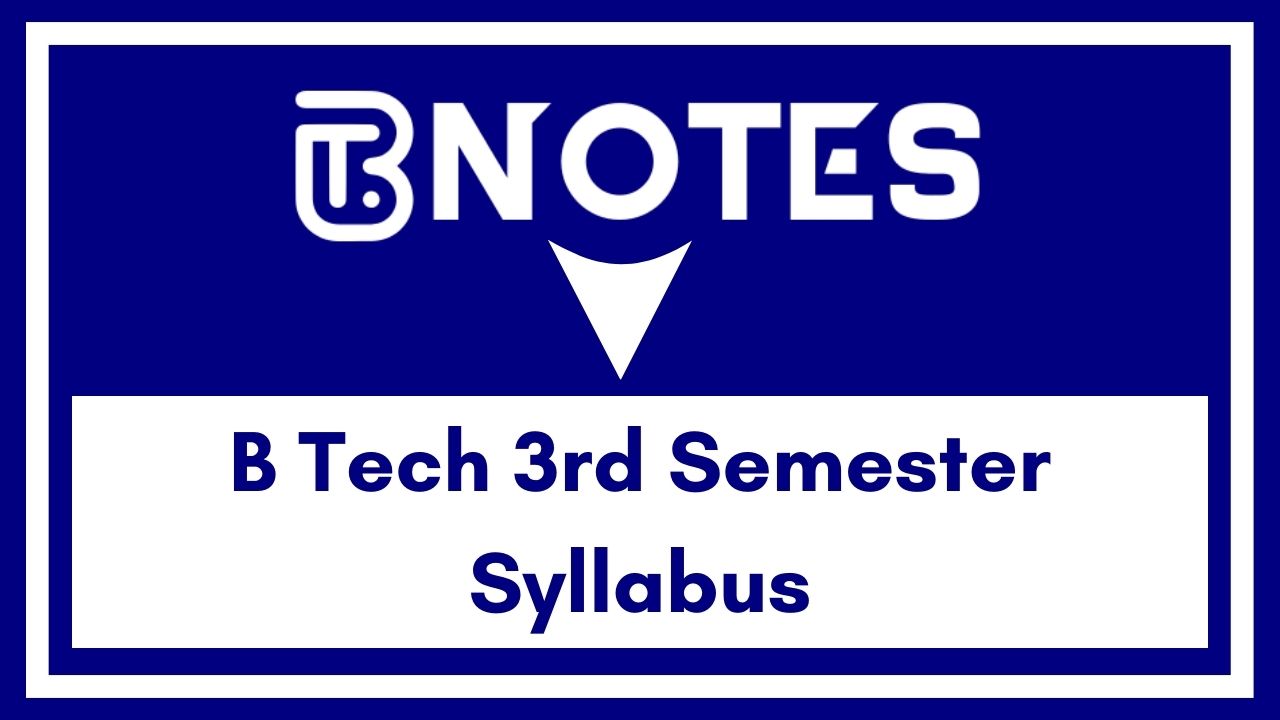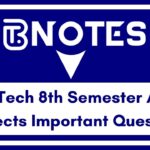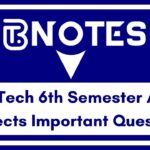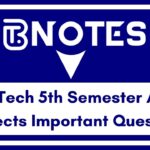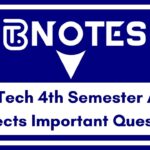The Bachelor of Technology (B.Tech) is a four-year undergraduate program that transitions from broad foundational studies in the first year to specialized learning in subsequent semesters. The 3rd semester is a pivotal stage where students begin diving into core subjects specific to their chosen branch.
For Computer Science and Engineering (CSE), this semester introduces fundamental concepts in programming, data management, and digital systems, laying the groundwork for advanced topics like artificial intelligence and software development. This syllabus reflects a typical CSE curriculum for the 3rd semester, though specific subjects and their depth may vary across institutions. It balances theoretical knowledge with practical labs to prepare students for the technical challenges ahead.
B Tech 3rd Semester Syllabus
Duration: Approximately 5-6 months (including classes, labs, and exams).
Focus: Core computer science concepts, programming, and analytical skills.
Theory Subjects
1. Engineering Mathematics – III
- Topics:
- Probability and Statistics: Random Variables, Distributions, Mean, Variance.
- Numerical Methods: Root Finding, Interpolation, Numerical Integration.
- Complex Variables: Analytic Functions, Contour Integration.
- Partial Differential Equations: Applications in Engineering.
- Objective: Provides mathematical tools for data analysis and computational problem-solving.
2. Data Structures
- Topics:
- Arrays, Linked Lists, Stacks, and Queues.
- Trees: Binary Trees, Binary Search Trees, AVL Trees.
- Graphs: Representation, Traversal (DFS, BFS).
- Searching and Sorting Algorithms.
- Objective: Teaches efficient data organization and manipulation techniques.
3. Digital Electronics
- Topics:
- Number Systems: Binary, Hexadecimal, Conversions.
- Logic Gates and Boolean Algebra: Simplification, Karnaugh Maps.
- Combinational Circuits: Adders, Multiplexers, Decoders.
- Sequential Circuits: Flip-Flops, Registers, Counters.
- Objective: Introduces the fundamentals of digital circuit design.
4. Computer Organization and Architecture
- Topics:
- Basic Computer Organization: CPU, Memory, I/O.
- Instruction Set Architecture: RISC vs. CISC.
- Memory Hierarchy: Cache, RAM, Virtual Memory.
- Pipelining and Parallel Processing Basics.
- Objective: Explores the internal workings of computer systems.
5. Object-Oriented Programming (OOP)
- Topics:
- OOP Concepts: Classes, Objects, Inheritance, Polymorphism.
- Programming in C++ or Java: Syntax, Libraries.
- Encapsulation and Abstraction.
- Exception Handling and File I/O.
- Objective: Develops skills in modular and reusable code design.
Practical/Lab Subjects
| Lab | Experiments/Activities | Objective |
|---|---|---|
| Data Structures Lab | Implementation of stacks, queues, and linked lists.Tree and graph traversal programs.Sorting and searching algorithm simulations. | Hands-on practice with data structure implementations. |
| Digital Electronics Lab | Design and test logic gates and combinational circuits.Flip-flop and counter experiments.Simulation using hardware kits or software (e.g., Multisim). | Practical understanding of digital circuit operations. |
| OOP Lab | Writing programs using classes and inheritance.Implementing polymorphism and exception handling.Small projects (e.g., banking system, student records). | Reinforces object-oriented programming concepts. |
Assessment
- Theory: End-semester exams (typically 60-70% weightage) + Internal assessments (assignments, quizzes, midterms; 30-40% weightage).
- Practicals: Lab performance, viva voce, and lab records.
- Credits: Each subject usually carries 3-4 credits (theory) or 1-2 credits (labs), totaling around 20-24 credits for the semester.
Notes
- Variations: Some universities might include subjects like “Discrete Mathematics” instead of “Engineering Mathematics – III” or add “Signals and Systems” for certain branches.
- Branch-Specific: This syllabus is tailored for CSE; other branches (e.g., Mechanical) would feature subjects like “Thermodynamics” or “Fluid Mechanics.”
Conclusion
The 3rd semester of the B.Tech program in Computer Science and Engineering marks the beginning of a student’s journey into the core of their specialization. By introducing critical subjects like Data Structures, Digital Electronics, and Object-Oriented Programming, it equips students with the technical foundation needed for advanced computing topics.
The practical labs complement theoretical learning, fostering hands-on skills that are vital in the tech industry. Completing this semester successfully prepares students for deeper exploration into areas like algorithms, networking, and software engineering, setting a strong trajectory for their academic and professional growth in the field.
More Resource:
